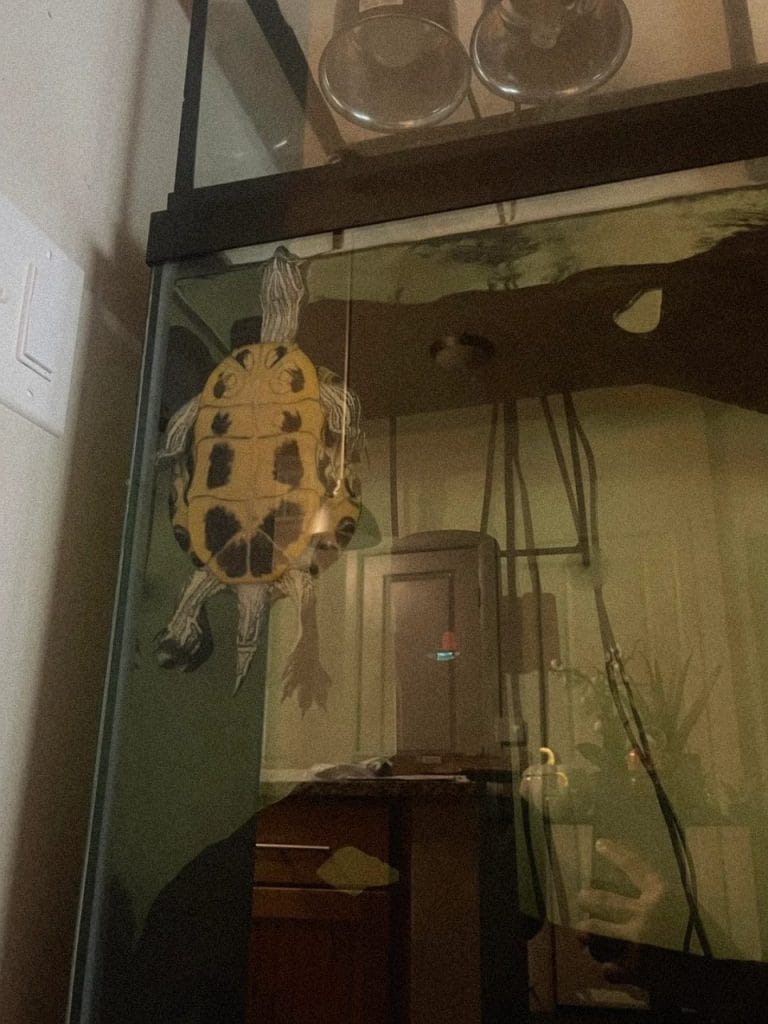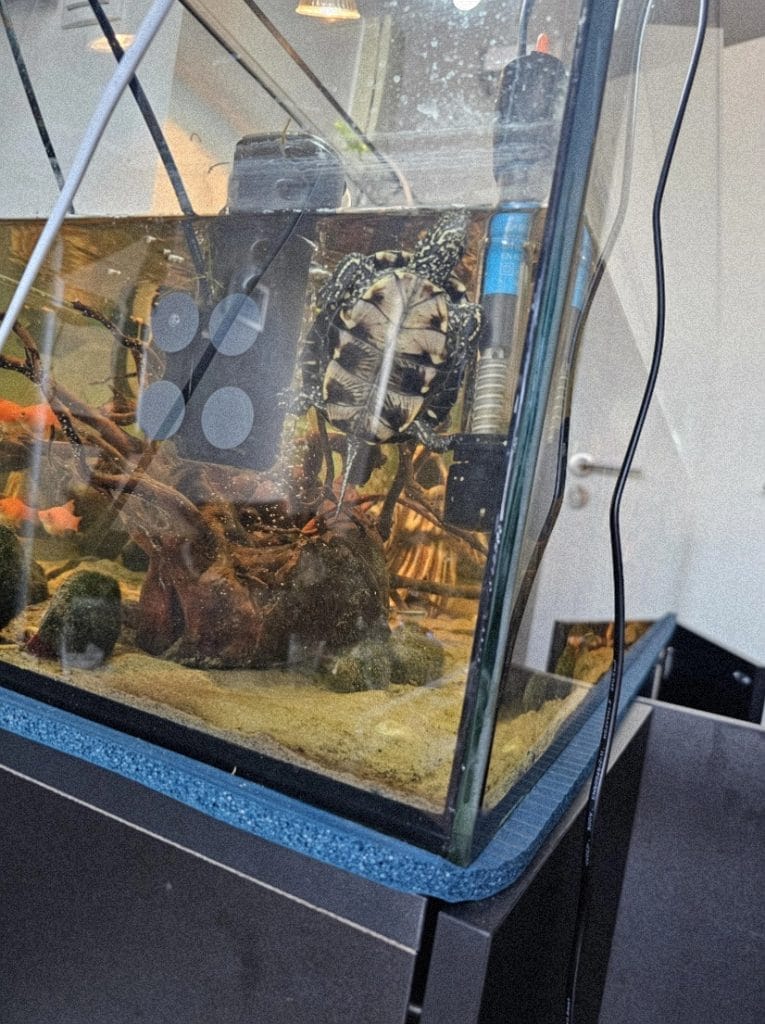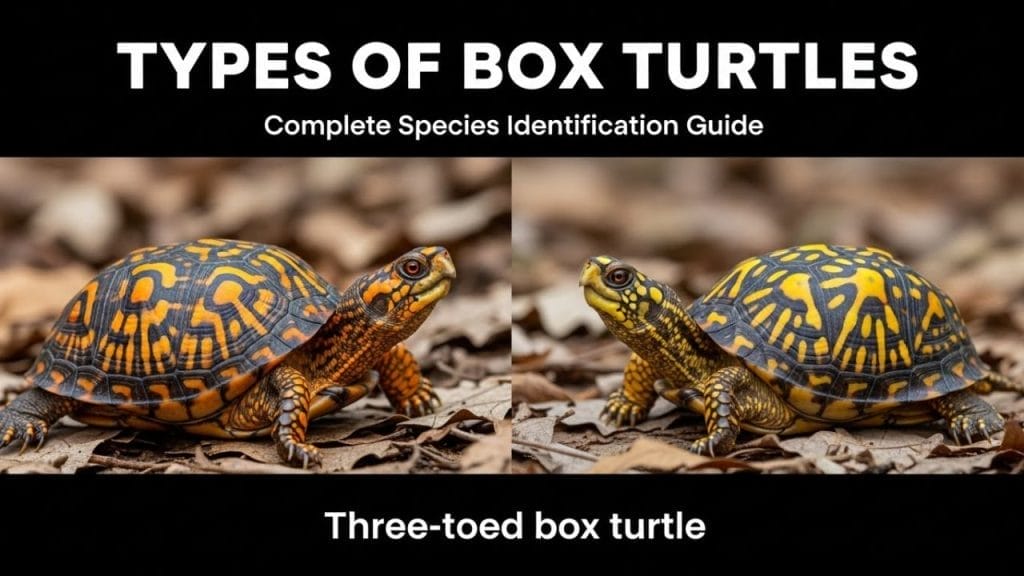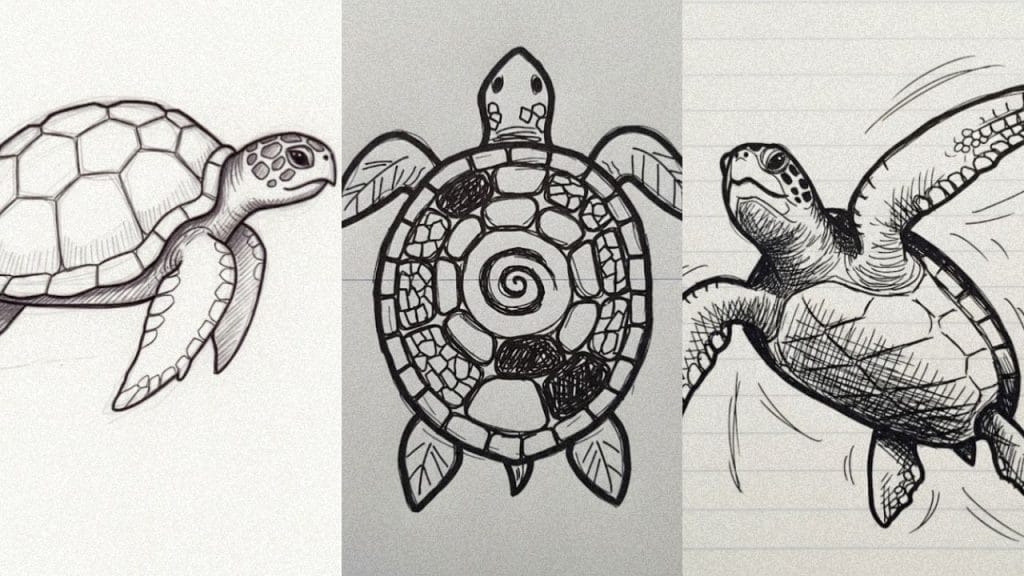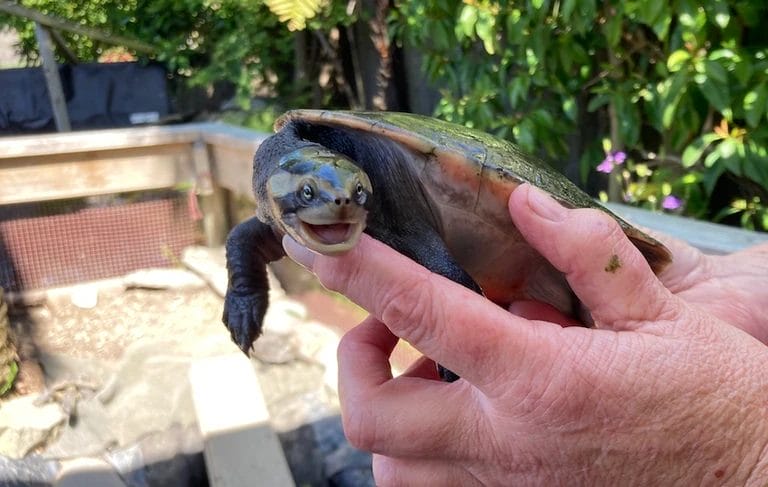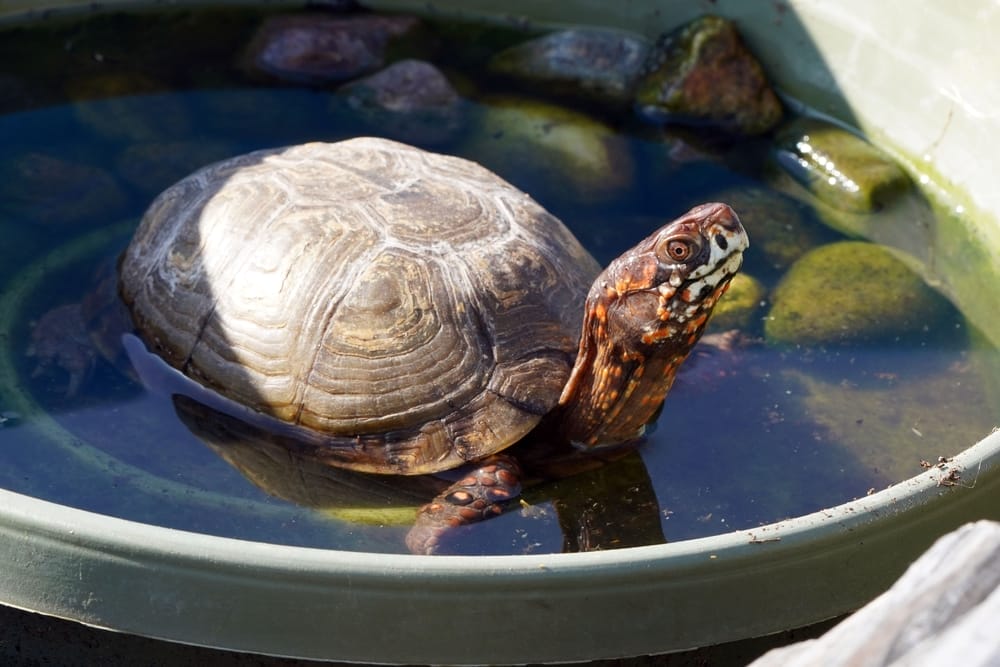Why Is My Turtle Sleeping Vertically? Normal?

This post was created with help from AI tools and carefully reviewed by a human (Muntaseer Rahman). For more on how we use AI on this site, check out our Editorial Policy.
Ever catch your turtle standing upright in the water like it’s posing for a weird underwater photo shoot? Don’t freak out just yet.
Turtles have some odd sleeping habits, and vertical sleeping is one of them. It might look strange, but in most cases, it’s totally normal. This little quirk usually means your turtle feels relaxed and safe in its tank.
Let’s break down what’s going on and when (if ever) you should worry.
Is It Normal for Turtles to Sleep Vertically?
Yep, it’s normal.
Some turtles sleep straight up in the water like they’re taking a power nap mid-hover. It’s just one of the many strange ways they rest. If your turtle does this often, it likely feels secure in its environment.
They don’t need a bed like we do—they just need to feel safe and supported in the water. Vertical sleeping usually means they’ve figured out a comfy way to float without drifting away or sinking.
While vertical sleeping is unusual, some turtles also prefer sleeping completely out of water on their basking dock, which is equally harmless in most cases.
Why Do Turtles Sleep This Way?
Turtles are sneaky floaters.
They can puff up their throat or neck area with air to stay afloat, which helps them rest without sinking. This trick lets them stay in a vertical position without using much effort.
It’s not just about sleep—it’s about comfort and staying close to the surface so they can breathe easily if needed. Some turtles even mix it up by sleeping half-in, half-out of the water like it’s their personal spa day.
This Hilarious Turtle Book Might Know Your Pet Better Than You Do
Let’s be real—most turtle care guides feel like reading a textbook written by a sleep-deprived zookeeper.
This one’s not that.
Told from the snarky point of view of a grumpy, judgmental turtle, 21 Turtle Truths You’ll Never Read in a Care Guide is packed with sarcasm, sass, and surprisingly useful insights.
And hey—you don’t have to commit to the whole thing just yet.
Grab 2 free truths from the ebook and get a taste of what your turtle really thinks about your setup, your food choices, and that weird plastic palm tree.
It’s funny, it’s honest, and if you’ve ever owned a turtle who glares at you like you’re the problem—you’ll feel seen.
What You Should Check
If your turtle’s sleeping upright, you don’t need to panic—but don’t go full lazy mode either. Just check a few basics to make sure everything’s fine:
Make sure the tank has proper water temperature, a basking area, and clean water. A lazy turtle is one thing—a sick one is another.
Add resting spots that aren’t just the basking platform. Think flat rocks or low platforms where your turtle can chill without effort.
If your turtle seems restless or keeps trying to climb the walls, you might be dealing with a different issue entirely that needs addressing.
Watch how your turtle acts when it’s awake. Is it eating, swimming, basking, and generally being its usual self? If yes, then vertical sleeping is just its weird bedtime choice.
When It Might Be a Problem
Vertical sleeping isn’t a problem—until it comes with other weird stuff.
If your turtle looks weak, floats lopsided, gasps at the surface, or just refuses to eat, that’s not normal anymore and requires immediate attention.
That’s your cue to stop Googling and call a reptile vet.
Also, if it spends the whole day barely moving or always hides, that’s a red flag too. One odd habit is fine. A bunch of them together? Not so much.
frequently asked questions
Why might a turtle sleep vertically and is it safe to do so?
Turtles often sleep vertically to float comfortably in the water. It’s safe and usually shows they feel secure in their environment.
What signs indicate a turtle’s vertical sleeping posture is abnormal?
If your turtle looks weak, floats lopsided, gasps for air, or stops eating, that’s not normal. These may point to illness, not just a weird sleep pose.
How can I ensure my turtle’s sleep position is healthy?
Keep the water clean and warm, add resting spots, and make sure your turtle is active and eating well during the day. A happy turtle sleeps in odd ways sometimes.
Does sleeping vertically suggest stress or illness in turtles?
Not unless it comes with other problems like constant hiding, lack of appetite, or floating oddly. On its own, vertical sleeping doesn’t mean stress.
What steps should I take if my turtle consistently sleeps in an upright position?
Check the tank setup, watch for changes in appetite or energy, and make sure the turtle has good resting spots. If it’s acting totally normal, you don’t need to do anything.

About Author
Muntaseer Rahman started keeping pet turtles back in 2013. He also owns the largest Turtle & Tortoise Facebook community in Bangladesh. These days he is mostly active on Facebook.

